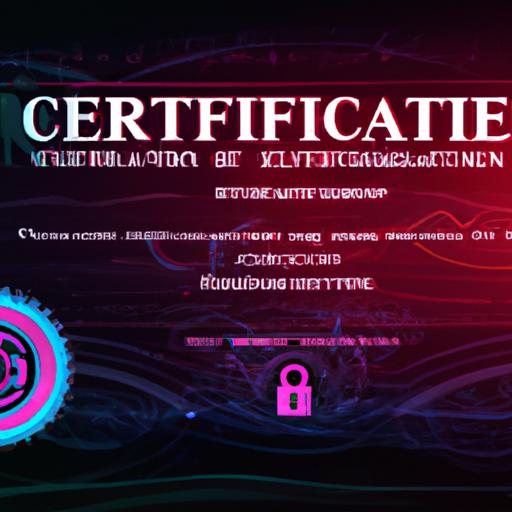Azure Security vs AWS Security: A Comprehensive Comparison
Introduction
In today’s digital age, the significance of cloud security cannot be overstated. As businesses increasingly rely on cloud services to store, process, and manage data, ensuring the security of these environments is paramount. Cloud security encompasses a wide array of measures and protocols designed to protect data, applications, and infrastructure from cyber threats.
Securing cloud environments is not just about safeguarding sensitive information; it’s about safeguarding the very foundation of your operations. Without adequate security measures in place, organizations are vulnerable to data breaches, cyber attacks, and potential financial losses. Whether you are using Azure or AWS for your cloud services, understanding the security features and best practices is crucial to maintaining a robust security posture.
Stay tuned as we delve into the world of Azure security versus AWS security, comparing their features, highlighting best practices, and helping you make informed decisions to fortify your cloud infrastructure. Let’s embark on this journey to explore the realm of cloud security and empower you with the knowledge to protect your digital assets effectively.
Azure Security Features
Overview of Azure Security Measures
When it comes to Azure security, Microsoft has implemented a robust framework to safeguard your cloud environment. Azure offers a comprehensive set of security features, including network security groups, Azure Security Center, and Azure Firewall. These tools work together to provide defense-in-depth protection against cyber threats.
Authentication and Access Control in Azure
Authentication and access control are crucial components of Azure security. Azure Active Directory (Azure AD) plays a pivotal role in managing user identities and access rights. With features like role-based access control (RBAC) and multi-factor authentication (MFA), Azure ensures that only authorized users can access resources, reducing the risk of unauthorized access.
Data Encryption and Protection in Azure
Data encryption is essential for protecting sensitive information stored in the cloud. Azure offers encryption at rest and in transit to secure data both in storage and during transmission. Azure Key Vault allows you to manage encryption keys securely, ensuring that your data remains confidential and integrity is maintained. By leveraging these encryption capabilities, you can enhance the security of your data in Azure.
Azure Security Features
Overview of Azure Security Measures
When it comes to safeguarding your data in the cloud, Azure offers a robust set of security features to protect your assets. From advanced threat detection to compliance certifications, Azure’s security measures are designed to provide comprehensive protection against cyber threats.
Authentication and Access Control in Azure
Authentication and access control are crucial components of Azure security. Azure Active Directory (AD) enables you to manage user identities and control access to resources effectively. With features like multi-factor authentication and role-based access control, Azure ensures that only authorized users can access your data and applications.
Data Encryption and Protection in Azure
Data encryption is essential for maintaining the confidentiality and integrity of your data. Azure offers encryption options for data at rest and in transit, ensuring that your information remains secure. Additionally, Azure provides data protection features such as Azure Information Protection, which allows you to classify and label sensitive data to prevent unauthorized access.
Best Practices for Securing Azure and AWS
Implementing Multi-Factor Authentication
One of the fundamental best practices for enhancing security in both Azure and AWS environments is implementing multi-factor authentication (MFA). MFA adds an extra layer of protection by requiring users to provide multiple forms of verification before gaining access to sensitive data or systems. By combining something you know (like a password) with something you have (such as a security token or biometric verification), MFA significantly reduces the risk of unauthorized access.
Regularly Monitoring Security Logs
Continuous monitoring of security logs is essential for identifying and responding to potential security threats in real-time. By analyzing log data generated by various systems and applications within your Azure and AWS environments, you can detect suspicious activities, unauthorized access attempts, or anomalies that may indicate a security breach. Regularly reviewing security logs allows you to proactively address security incidents and prevent potential data breaches.
Conducting Security Audits and Assessments
Regular security audits and assessments are critical for evaluating the effectiveness of your security measures and identifying any vulnerabilities or gaps that need to be addressed. By conducting comprehensive security audits, you can assess the overall security posture of your Azure and AWS environments, pinpoint weak points, and implement remediation strategies to enhance security. Periodic assessments help you stay ahead of evolving cyber threats and ensure that your cloud infrastructure remains secure and resilient.
Comparison of Azure and AWS Security
Differences in Security Architecture
When comparing Azure and AWS security, one of the key aspects to consider is their security architecture. Azure follows a role-based access control (RBAC) model, allowing users to assign permissions based on their roles within the organization. On the other hand, AWS utilizes Identity and Access Management (IAM) to manage user access to resources. Understanding these architectural differences can help you determine which platform aligns better with your security requirements.
Comparison of Security Tools and Services
Both Azure and AWS offer a wide range of security tools and services to help organizations protect their cloud environments. From network security to threat detection and monitoring, each platform provides a suite of solutions aimed at enhancing security posture. By comparing the available tools and services on Azure and AWS, you can identify the ones that best suit your specific security needs.
Performance and Reliability of Security Measures
The performance and reliability of security measures on Azure and AWS play a critical role in ensuring the protection of your data and applications. Factors such as uptime, scalability, and response times during security incidents should be taken into account when evaluating the effectiveness of security measures on both platforms. By assessing the performance and reliability of security features, you can make informed decisions to strengthen your cloud security infrastructure.




